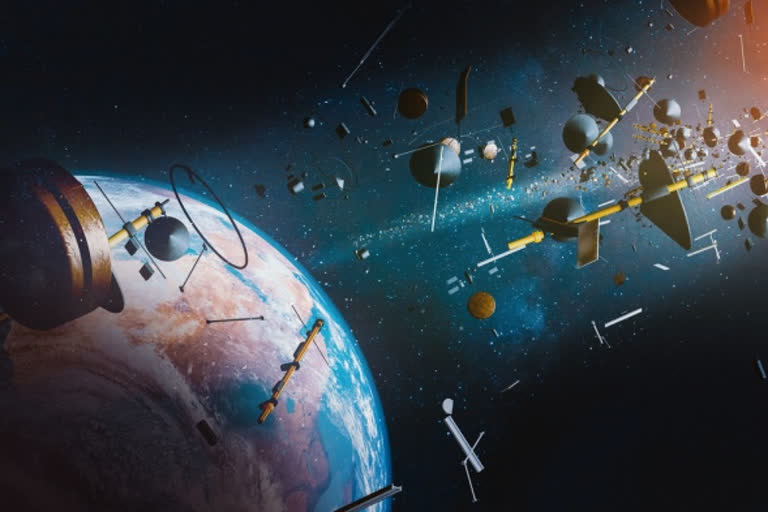Prague (Czech Republic): Satellites orbiting Earth provide essential services to humanity. They connect us via the internet, they help with mapping and GPS and they monitor our changing climate, among other things. But space junk' threatens our use of satellites. Decommissioned satellites or their dislocated parts may lead to a chain reaction where small pieces of debris tear apart large objects in a cascading event creating more and more debris.
Responsibility for space junk removal is an environmental problem similar in some ways to climate change - it's a collective responsibility. And just as managing climate change is assisted by satellites, so managing satellite debris can be assisted by climate change. Like climate change, the problem of space junk can only be tackled by international cooperation. The UN Framework Convention on Climate Change, signed at the Rio Earth Summit in 1992, was the first and most complex instrument of international law to address climate change and can provide some insights into how to manage space junk.
The convention includes a principle called Common but Differentiated Responsibilities (CBDR). It says states should be held accountable in different measure according to their respective historical and current contributions to the creation of global environmental problems and their respective capacities to address these problems. With climate change, nations acknowledged that industrialised countries had contributed significantly more to climate change than countries with developing economies and therefore should bear greater responsibility for managing its consequences. According to the polluter-pays principle, the extent that a country has contributed to climate change as well as its capacity to mitigate climate change is taken into account.
All space activities are threatened by space junk contamination. The plans of nations that do not yet possess the resources to engage in space activities may be rendered meaningless by it, and that's even if only the space objects that are still in use are considered. Countless defunct objects cloud Earth's orbit and they are growing in number. When they have developed the means to do so, these nations may discover they can no longer exercise their right to explore space.
Philosophers throughout history have pondered how best to coordinate international cooperation and decision-making. In Perpetual Peace: A Philosophical Sketch (1795), Immanuel Kant considers the repercussions of humanity entering a universal community where violations of the law in a certain part of the world are experienced everywhere.
Envisioning the world as a federation of states promoting international trade and abolishing war, Kant proposes cosmopolitan law' as the foundation for global society to guarantee lasting peace. Kant's ideas influenced the establishment of the League of Nations as well as the contemporary United Nations.
